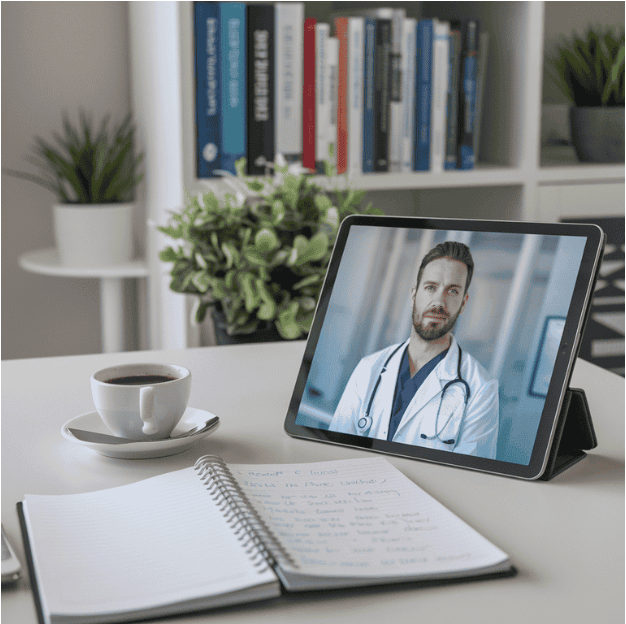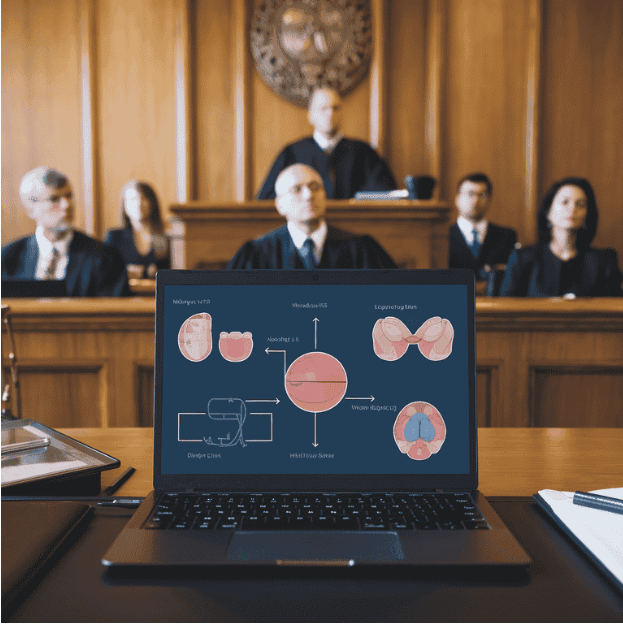When legal cases involve the health and well being of children, having a credible medical expert witness in pediatrics can be crucial. Whether the case revolves around medical malpractice, injury claims, or child welfare matters, a pediatrics expert witness plays a vital role in providing informed, impartial insights. Selecting the right pediatrics expert can strengthen a case, clarify complex medical issues, and help achieve a just outcome. This guide will walk you through everything you need about finding and working with a qualified pediatrics expert witness.

Let’s explore what makes a pediatric expert witness essential and how they contribute to legal proceedings.
What is a Pediatrics Expert Witness?
Definition and Role of a Pediatrics Expert Witness
A pediatric expert witness is a medical professional with specialized knowledge in pediatric care. Their expertise covers the medical treatment, development, and health of infants, children, and adolescents. In legal cases, these experts provide unbiased opinions and testimony based on their clinical experience and specialized training.
Types of Cases that Require a Pediatrics Expert Witness
Pediatrics expert witnesses are called upon in various legal situations, such as:
- Medical Malpractice: Assessing the quality of care provided by pediatricians or healthcare providers during treatment.
- Injury Claims: Evaluating the impact of injuries on a child’s physical and psychological development.
- Child Welfare and Abuse Cases: Examining cases where child neglect or abuse is alleged, offering professional insights into the nature and extent of injuries.
- Product Liability: Reviewing cases where defective products may have harmed a child, from toys to medical devices.
Qualification and Expertise of a Pediatrics Expert Witness
Medical Qualification and Certifications
- Board Certification in Pediatrics: A board-certified pediatrician has passed rigorous exams and maintain continuous training in their field. Board certification signifies that physician meets established standards of pediatrics care.
- Specialized Experience: Pediatric experts may have additional training or certification in subspecialties like neonatology, pediatric oncology, pediatric surgery, or development pediatrics.
Our Specialized Knowledge
- Neonatology: Focuses on caring for newborns, especially those born prematurely or with complex medical conditions. Neonatology experts play a crucial role in cases involving birth injuries, complications in neonatal intensive care units (NICUs), and issues related to preterm birth.
- Pediatric Surgery: Involves surgical treatment and care for infants, children, and adolescents, addressing congenital and acquired conditions. Pediatric surgery experts provide insights into the appropriateness of surgical procedures and adherence to standard surgical practices in pediatric cases.
- Development and Behavioral Pediatrics: Addresses development delays, behavioral challenges, learning disabilities, and other growth-related concerns. Experts in this area are often called upon in cases involving allegations of misdiagnosis or failure to identify developmental disorders early.
- Adolescent Medicine: Specializes in the health and well being of teenagers, covering topics related to puberty, mental health, and substance use. This expertise is valuable in cases involving teenage health issues, psychological well-being, and substance abuse treatment or neglect.
- Pediatric Critical Care: Focuses on intensive care for critically ill children with severe medical conditions or injuries. Pediatric critical care experts testify to the standard of care in pediatric ICUs, emergency interventions, and outcomes of necessary medical treatment for children.
Importance of Ongoing Medical Training

Roles and Responsibilities of a Pediatrics Expert Witness
Reviewing Medical Records and Evidence
- Patient History: Reviewing past medical records to understand the child’s health history and pre-existing conditions.
- Medical Documentation: Examining treatment records, diagnostics reports, and any medical procedures performed.
- Forensic Evidence: In case involving alleged abuse or negligence, the expert may need to review physical or forensic evidence related to the child’s condition.
Providing Medical Opinions
- Standard of Care: Did the medical provider follow the accepted standards in pediatric care ?
- Causation: Did a deviation from these standards contribute to the child’s injuries or condition ?
- Extent of Harm: What are the injurie’s nature and extent, and what are the potential long-term effects ?
Depositions and Court Testimony
- Deposition: The expert may be deposed by attorneys, answering questions under oath to clarify their findings.
- Court Testimony: During trial, the expert witness is responsible for explaining medical concepts, discussing their findings, and responding to cross-examination.
Effective communication is critical. The expert must be able to simplify complex medical issues while maintaining professionalism and objectivity.
When Do You Need a Pediatrics Expert Witness ?
Common Scenarios for Pediatrics Expert Testimony
- Medical Malpractice Cases: In cases where a child has suffered due to alleged medical negligence, a pediatrics expert can assess whether the standard of care was breached and if that breach resulted in harm.
- Personal Injury Claims: When a child is injured in an accident, the court needs expert insight into the nature of the injuries, the treatment provided, and any future implications for the child’s health.
- Child Abuse or Neglect Cases: In legal proceedings involving allegations of child abuse or neglect, the pediatrics expert can assess injuries and offer an opinion on their cause and severity. Their testimony can be pivotal in determining whether abuse occurred.
- Product Liability: Cases involving defective products that cause injury to children often require a pediatric expert to evaluate the impact of the product on the child’s health and development.
Table: When to involve a Pediatrics Expert Witness
Type of Case | Role of Pediatrics Expert |
Medical Malpractice | Assess the standard of care and causation. |
Personal Injury | Evaluate injury severity and long-term impact. |
Child Abuse/Neglect | Provide expert opinions on the nature and cause of injuries. |
Product Liability | Assess the effect of defective products on children. |

How to Find the Right Pediatrics Expert witness
Working with Medical Expert Witness Networks
- Pre-screen Experts: Ensure that all listed experts meet strict criteria regarding experience, board certification, and areas of expertise.
- Provide Nationwide Access: Offer a wide range of experts across various specialties, allowing attorneys to find the perfect match regardless of location.
Checking Credentials and Experience
- Board Certification: Confirm that the expert is board certified in pediatrics or a relevant subspecialty.
- Courtroom Experience: Check if the expert has previously testified in court and if their testimony was well-received. Experience in deposition and cross-examination is an advantage.
- Specialized Training: some cases may require experts with specific training in fields like child development, pediatric surgery, or neonatology.
Evaluating Communication Skills and Courtroom Experience
- Strong Communication Skills: The expert should be able to explain medical terms in simple language, making complex concepts accessible to the court.
- Courtroom Experience: Check if the expert has previously testified in court and if their testimony was well-received. Experience in deposition and cross-examination is an advantage.
The Process of Working with a Pediatrics Expert Witness
Initial Consultation and Case Review
- Discuss the Case Details: Attorneys provide a summary of the case, including critical medical records, timelines, and legal questions that need expert input.
- Define the Expert’s Role: It’s essential to outline what is expected from the expert, whether it’s an in-depth analysis of medical records, deposition testimony, or offering a medical opinion on the standard of care.
- Assess Feasibility: The expert will review the initial case details to determine if they can provide valuable insights and remain objectives in their assessment.
Drafting a Comprehensive Expert Report
- Case Summary: The case overview includes the patient’s medical history and key events leading to the legal dispute.
- Expert Findings: A detailed explanation of the expert’s assessment, including whether the standard of care was met or breached and any causative factors.
- Medical Opinions: Clear and concise medical opinions backed by evidence and relevant medical literature.
Preparing for Deposition and Testimony
- Review of Key Issues: The expert and legal team collaborate to identify critical issues that may be addressed during cross-examination
- Mock Questioning: Practice potential questions helps the expert feel more comfortable and prepared when presenting testimony to a judge or jury.
- Simplifying Complex Concepts: The expert works on distilling complex medical concepts into clear, straightforward language that anyone in the courtroom can understand.

Essential Qualities to look for in a Pediatrics Expert Witness
Unbiased and Objective Approach
- Focus on Facts: An unbiased expert focuses on the facts of the case and remains open to various possibilities until all the evidence is reviewed.
- Clear Documentation: They meticulously document their findings and present them in a way that reflects neutrality and professionalism.
Strong Analytical Skills
- Attention to Detail: Experts must pay close attention to every aspect of the case, from minor medical history notes to detailed diagnostic results.
- Critical Thinking: They must apply critical thinking to draw logical conclusions and offer well-reasoned medical opinions based on their analysis.
Effective Communication and Professionalism
- Clarity in Explaining Findings: The expert should be able to break down complex medical terms and explain their findings in a clear, concise manner to attorneys, judges, and jurors.
- Confidence Under Pressure: They must remain calm and composed during depositions or cross-examinations, responding confidently and professionally.
Challenges Faced by Pediatrics Expert Witnesses
Dealing with Emotional and Sensitive Cases
- Maintaining Professional Distance: While empathy is crucial, it’s also essential for experts to maintain a level of professional distance to stay objective.
- Addressing Family Concerns: In some cases, the expert may need to communicate findings to the child’s family, requiring tact and sensitivity.
Navigating Complex Medical Issues in Pediatric Cases
- Styling Current with Medical Advances: Medical guidelines are constantly changing, especially in specialized fields like neonatology or pediatric oncology. Experts must dedicate time to ongoing education.
- Explaining Complex Diagnoses: Conditions like congenital heart defects or neurodevelopmental disorders can be challenging to explain. Experts need to simplify these complexities without losing accuracy.

The Role of Pediatric Expert Witnesses in Court
Presenting Finding in Clear and Simple Terms
- Using Simple Language: The expert should avoid jargon and use straightforward language to explain medical concepts.
- Visual Aids and Diagrams: Sometimes, using visuals like diagrams, timelines, or graphs can help convey complex information effectively.
Answering Cross-Examination Questions Effectively
as:
- Sticking to Facts: The expert should avoid speculation and stick to the facts of the case, backing up their answers with evidence.
- Maintaining Composure: When faced with aggressive questioning, the expert must remain composed, respectful, and unwavering in their responses.
Common Myths and Misconceptions About Pediatrics Expert Witnesses
Dispelling Misconceptions About Bias
One Common myth is that expert witnesses are automatically biased towards the side that hires them. This misconception can lead to mistrust of expert testimony, but it’s essential to understand the reality.
A reputable pediatrics expert witness adheres to strict ethical standards. Their role is not to advocate for one side but to provide an impartial, fact-based opinion. Here are some key points to remember:
- Fact-Based Opinions: Experts rely solely on medical facts, evidence, and established standards of care. Their medical knowledge shapes their opinions, not by who pays them.
- Ethical Guidelines: Medical experts are bound by ethical guidelines that require them to remain neutral. Their integrity is crucial for maintaining their professional reputation.
Misunderstandings About Expert Qualifications
- Specialized Knowledge: The best pediatrics expert witnesses often have additional training or certifications in relevant subspecialties, such as neonatology or pediatric oncology.
- Legal Experience: Expert witnesses must be familiar with legal processes, including presenting findings clearly and responding to cross-examination effectively.

Breaking It All Down
When a legal case involves the health and well-being of children, having the right pediatric expert witness can make all the difference. From providing unbiased opinions to explaining complex medical issues clearly, these experts play a pivotal role in ensuring a fair and accurate outcome.
By understanding their roles, qualifications, and responsibilities and avoiding common myths and misconceptions, attorneys can make informed decisions when selecting the right expert witness. Working with trusted expert networks like MLP IME can also streamline the search and provide access to highly qualified and experienced medical professionals.
Choosing the right pediatric expert witness requires attention to detail, a focus on objectivity, and understanding the unique challenges pediatric cases can present. With the right expert, you can navigate complex cases with confidence and clarity.
Frequently Asked Questions
What types of pediatric cases benefits most from expert witness testimony ?
How does a pediatrics expert witness prepare for a legal case ?
What is the role of a pediatrics expert witness during cross-examination ?
How can attorneys ensure their chosen expert remains unbiased ?
What should I look for in a pediatrics expert witness network ?
What happens if my case requires multiple pediatrics experts ?
How do pediatric expert witnesses handle emotionally sensitive cases ?
What if there are conflicting medical opinions between expert witnesses ?
How can a pediatrics expert help with settlement negotiations ?
What is the benefit of using visual aids in pediatric expert testimony ?
Glossary
Pediatrics Expert Witness
Standard of Care
Medical Malpractice
Medical Records
Cross-Examination
Deposition
Medical Opinion
Child Abuse and Neglect
Legal Testimony
Board Certification
Neonatology
Ethical Standards
Expert Report
Development Pediatrics
Product Liability
Visual Aids
Mock Questioning
Forensic Evidence
Plaintiff and Defense Services
Additional Resources for You
American Academy of Pediatrics (AAP)
The AAP offers extensive information on pediatric care, guidelines, and ongoing medical education, which is crucial for understanding standards of care in legal cases involving children.
Visit AAP
National Association of Pediatric Nurse Practitioners (NAPNAP)
Visit NAPNAP
Federation of State Medical Boards (FSMB)
Visit FSMB
American Medical Association (AMA)
Visit AMA
National Association of Certified Valuators and Analysts (NACVA)
Visit NACVA



